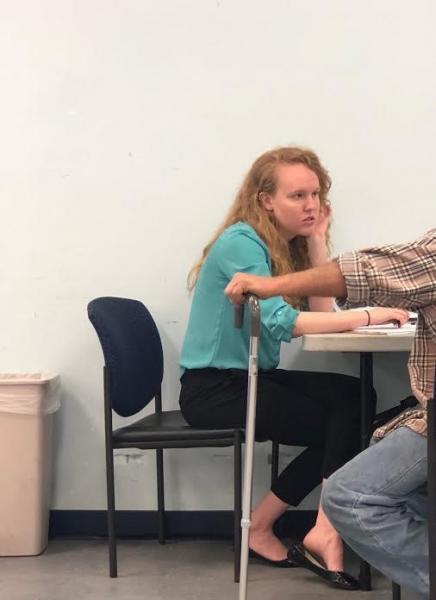Divided
 Good fences make good neighbors. A few months ago, maintenance removed the gates from my apartment complex, leaving a few lonely pillars and a wide open entryway. This was a constant concern for some of our neighbors, which meant that we not only had no control over who could come into the complex, but we also had to listen to these increasingly vocal opinions. Overall though, it was a minor drama, and one that I easily forgot when I went into service.
Good fences make good neighbors. A few months ago, maintenance removed the gates from my apartment complex, leaving a few lonely pillars and a wide open entryway. This was a constant concern for some of our neighbors, which meant that we not only had no control over who could come into the complex, but we also had to listen to these increasingly vocal opinions. Overall though, it was a minor drama, and one that I easily forgot when I went into service.
There, our patients often face significant challenges such as low income, limited education about the healthcare system, and hearing or speech-language impairments that bring them to us in the first place. Why? I could say bad luck, but it’s not luck exactly. Socio-economic status, childhood experiences, erratic employment--each patient’s unique life situation creates a unique set of barriers to health. Deconstructing these requires slightly more complex work than simply removing some hinges.
An example: in a brightly-lit convention center, I attempt to explain to a woman how she can finance her husband’s hearing aids even though they have no health insurance. My broken Spanish is still stronger than her limited English, and there’s an incredible dearth of Spanish-speakers at this event, so I translate as she makes appointments with her primary care office, a financial consultant, and medical specialists. At events like this, my badge often gives me some semblance of power and helps patients trust what I say, but that assurance isn’t necessary here. We do not need the wall of authority to divide this woman from me: she is all outsider, in a system and a language she does not understand, and I am not. And while my experience helps me guide her, it is also another barrier between us.
But while structural issues like a lack of easily accessible Spanish-language resources separate my understanding and her life, it’s not impossible to actually connect. Sometimes our differences are painfully obvious, like when the doctor talks to me instead of her even when discussing her health, but occasionally it’s as though there’s no language or familiarity barrier at all. These gaps I mean- the gaps in what divides us- at first we may not see them made or hear them made but sometimes, when we’re both actively trying to understand each other, we find them there. It becomes less about my helping her, and more about the two of us working together to solve a problem.
We have some time while waiting for paperwork to process, so she speaks to me in English about the places she’s visited and I reply in Spanish. It’s slow, halting communication, but we keep finding common ground.
“I was at Chicago last year. My friend lives there.”
“De verdad? Mi familia vive cerca de Chicago.”
Bit by bit, standing next to my health fair table, surrounded by a system she is only beginning to navigate, we create small connections that bypass the fences between us. Somehow, these commonalities feel like victories. Afterwards, once she has all her necessary medical and insurance appointments scheduled, I drive home through the still-open apartment gates and I smile. Something there is that doesn’t love a wall.
Some phrases quoted or paraphrased from lines 44, 35-36, 23-24, 9-11, and 1 of Robert Frost’s poem “Mending Wall”, which can be found here: (https://www.poetryfoundation.org/poems/44266/mending-wall)
This blog post was written by NHC FL AmeriCorps member, Maddie Pruhs.
Maddie serves at Jacksonville Speech and Hearing Center as an Outreach Coordinator.